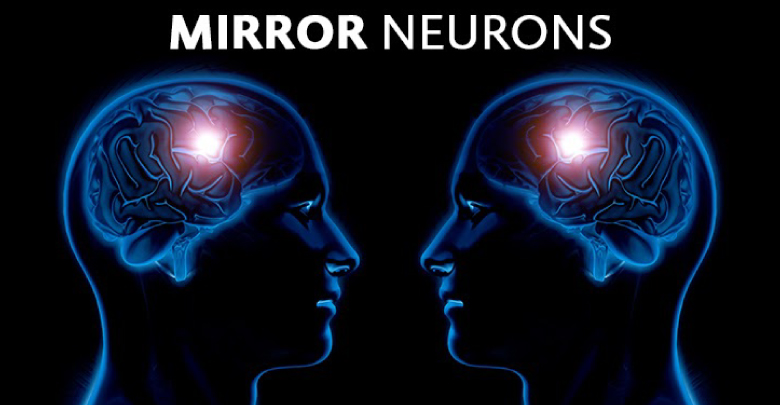The Science Behind Empathy
If you do research about empathy and empaths, you will probably find a lot of information related to spirituality, psychic abilities, or interdimensional communication. When there is something that science has not fully explained yet, it is likely to be described in some kind of supernatural way. Although there is still a long way to go, the science is in the early phases of explaining empathy and empaths, and the aim of this article is to have a chance to understand it from this perspective. I see this article as a starting point by perhaps naming a few concepts that can be the groundwork for further research and exploration if you have interest in this topic.

Why did I choose this tool? Researching empathy and empaths is an interesting but confusing pursuit. When I read this list of scientific (or semi-scientific) explanations for empathy, it helped me to be able to narrow my search for information in a certain direction, rather than ending up with all kinds of confusing information. I hope that in the coming years there will be more developments in the field of research, related to emotions, empathy and empaths as I consider it to be one of the most interesting and important topics I have ever worked on.
How does this apply to being a trainer? Developing the competence of “being empathetic” as part of the “communicating meaningfully with others” category can be very elusive. You might say, “ok but how”? Or “Why should I get more empathy, I have too much empathy as it is and I can hardly cope!” I believe the most important thing is to understand what empathy is, where we are at when it comes to empathy and emotions and what steps we can take to either develop more empathy or to get to a point where our existing empathy is working for us rather than against us. A trainer who is empathic, and yet is not overwhelmed by the emotions of others, can be uniquely effective in connecting with and leading others.
Main content:
Empathy is everywhere: it’s the air you breathe and the ground you walk on; it makes relationships, communities, and societies work. And yet, empathy can also be something of a mystery. Because empathy is such a central part of everything you do, you can overlook it and almost ignore the processes that make empathy work (or stop working). This is actually an important part of how empathy functions, because you don’t want to have to think about every piece of empathic information you pick up, then catalog all of it, then reflect on each piece, and then plod through all of your possible responses. In fact, it’s good that empathy is generally hidden from your conscious notice! But when you want to consciously work with your empathy—either to increase it or to calm it down—it’s very important to be able to enter into that hidden world and understand the processes of empathy very clearly.
McLaren, Karla. The Art of Empathy. Sounds True. Kindle Edition.
In light of this understanding, what are some of the more scientific explanations for empathy, that can perhaps help us to understand how much we have of it, how it might have been developed in the first place and how we can consciously work with our empathy at this stage of our lives?
Here are 4 explanations of the elements/mechanisms of empathy:
The Mirror Neuron System
Researchers have discovered a specialized group of brain cells that are responsible for compassion. These cells enable everyone to mirror emotions, to share another person’s pain, fear, or joy. Because empaths are thought to have hyperresponsive mirror neurons, they deeply resonate with other people’s feelings. How does this occur? Mirror neurons are triggered by outside events. For example, when our spouse gets hurt, we feel hurt too. When our child is crying, we feel sad as well, and when our friend is happy, we also feel happy.
The mirror neuron theory helps to explain some aspects of empathy, but not all. For instance, it explains why someone would instantly start crying when in the presence of someone who is crying. It doesn’t explain some other aspects of empathy, for instance how someone would feel the feelings of their loved ones who are far away, when they are not consciously aware of those feelings. I believe science still has a long way to go in understanding empathy, but this and the following theories can give us a starting point for understanding the topic from a scientific perspective.
This video gives an interesting description of the comical way this theory was discovered in the first place:
Electromagnetic fields
The second finding is based on the fact that both the brain and the heart generate electromagnetic fields. According to the HeartMath Institute, these fields transmit information about people’s thoughts and emotions. Empaths may be particularly sensitive to this input and tend to become overwhelmed by it.
I think it’s fair to say that the only reason why having empathy can be regularly overwhelming is because of the predominantly negative emotional input that is present in our modern world. People who are high in empathy, have a low tolerance to negative emotional input, particularly when there is nothing they can do to help and transform the negative into positive. I liken it to having “emotional HIV”, you basically pick up on every emotional disease around you. The experience of empathy can also be ecstatic, because just as the negative (is easily picked up on) the positive can be picked up as well. When empaths are exposed to the vibes of love, joy, care, creativity and other such emotions they have a very strong positive experience.
Emotional contagion
The third finding that enhances our understanding of empaths is the phenomenon of emotional contagion. Research has shown that many people pick up the emotions of those around them. For instance, one crying infant will set off a wave of crying babies in a hospital ward. Or one person loudly expressing anxiety in the workplace can spread it to other workers. People commonly catch other people’s feelings in groups. A recent article in the New York Times stated that this ability to synchronize moods with others is crucial for good relationships.
This one is especially relevant for trainers, as it means that the group will be easily influenced by your emotional state even if you don’t verbally express anything about it. Are you anxious? Be aware that you will trigger anxiety. Are you bored? Be aware that you will trigger boredom. Are you excited and energetic? You will trigger this as well. Leaders (and those with a leadership type personality) will be the strongest emotional influences on the group, so be aware of your emotional state before every session. This video describes this process more in detail, particularly for leaders and trainers.
Increased Dopamine Sensitivity
The fourth finding involves dopamine, a neurotransmitter that increases the activity of neurons and is associated with the pleasure response. Research has shown that introverted empaths tend to have a higher sensitivity to dopamine than extroverts. Basically, introverted empaths need less dopamine to feel happy. That could explain why they are more content with alone time, reading, and meditation and need less external stimulation from parties and other large social gatherings.
When you are high in empathy, you feel more of everything, the good and the bad. Whether you are introverted or extroverted, it’s essential to get dopamine from healthy sources otherwise it can lead to addiction or risky behaviors. Healthy sources might include exercise, the rush gotten from delivering an amazing training, and exciting activities like extreme sports or amusement park rides. Regular outlets to release negative emotions (even something as simple as going for a jog) can go a long way in helping you to preserve your sanity and being able to go on helping others from a grounded and calm state.
What to do about empathy
If you are looking to develop your empathy skills, one of the best ways is by becoming present to your emotions, whether they are positive or negative, as well as the emotions of others.
The reason why empathy is a largely underdeveloped skill in a lot of people is that they have gotten used to running away from emotions. Sometimes this is done through turning everything into a joke, sometimes by overanalyzing, sometimes by overtalking, sometimes by numbing behaviors, sometimes by literally running away from the emotional situation (fight or flight response). If we stop looking at emotions as something to be feared and rather an amazing part of who we are as human beings, we will start naturally learning more about our emotions and those of others, and empathy will come naturally to us.
If you are highly empathetic or even identify yourself as an empath, take some time to learn strategies to protect and ground yourself so that you are not constantly overwhelmed by emotions (particularly the negative ones). Have a safe space where you can reconnect with yourself and block out the outside world from time to time, and don’t be afraid to make big life decisions by taking into consideration this important piece of the puzzle, such as your work and the people you spend time with. Being empathic can be a superpower and a disability all at the same time, so learn how to hone it so that you can transform it from being a self-destructive to being a healing and creative power.
Reflection questions:
Do I consider myself to be highly empathetic, to have a lack of empathy or somewhere in the middle?
What are some factors in my life that may have contributed to me being on either side?
How comfortable am I with my own emotions, positive or negative?
How comfortable am I with the emotions of others, positive or negative?
Do I find myself running away from emotions, or staying present with them until they take their natural course?
What can I gain by developing my empathy/learning to manage my empathy?
Exercise
One way you can get better at understanding and developing your empathy, whether you want to be more empathic or get better at controlling your empathy, is to learn how to observe your own feelings and take note of them.
Whenever you feel overwhelmed by emotion, take some time to analyze what you’re feeling, what seems to have caused this emotion on the surface, and what hidden triggers might have actually caused this feeling. Keep a journal so that you can observe trends and patterns, and become more emotionally intelligent about yourself.
Doing this can make you more emotionally intelligent over time and help you to understand and empathize with others better, as well as to learn how to protect yourself from being overwhelmed with empathy and emotion.





